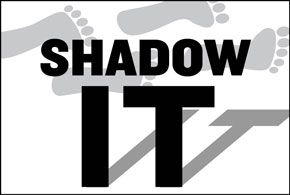
Shadow IT’s Growing Footprint
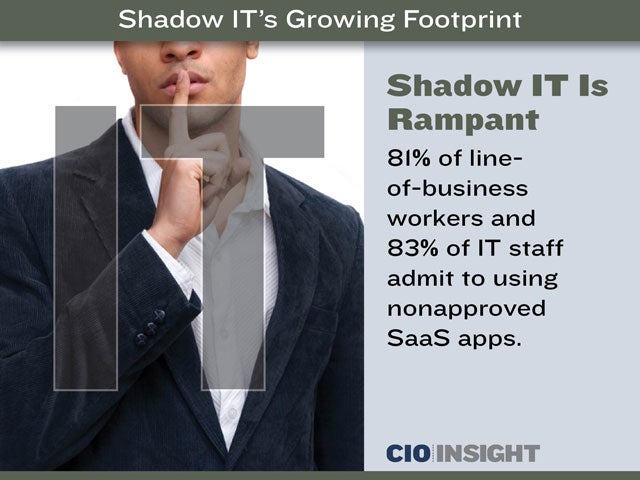 Shadow IT Is Rampant
Shadow IT Is Rampant
81% of line-of-business workers and 83% of IT staff admit to using nonapproved SaaS apps.
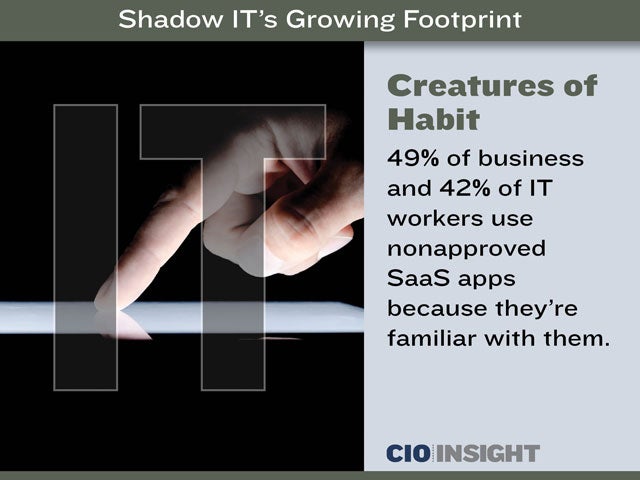 Creatures of Habit
Creatures of Habit
49% of business and 42% of IT workers use nonapproved SaaS apps because they’re familiar with them.
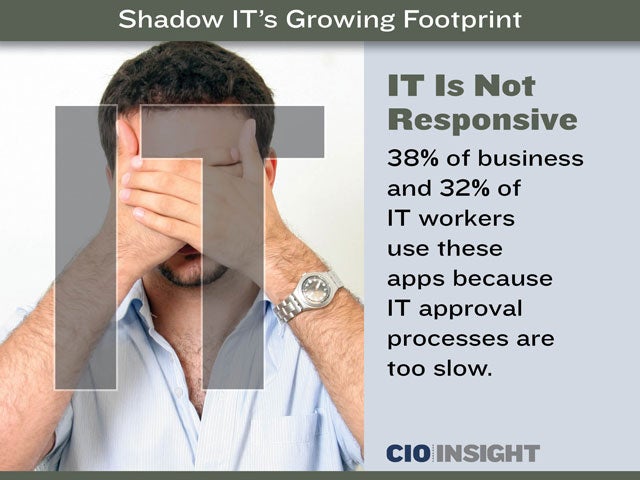 IT Is Not Responsive
IT Is Not Responsive
38% of business and 32% of IT workers use these apps because IT approval processes are too slow.
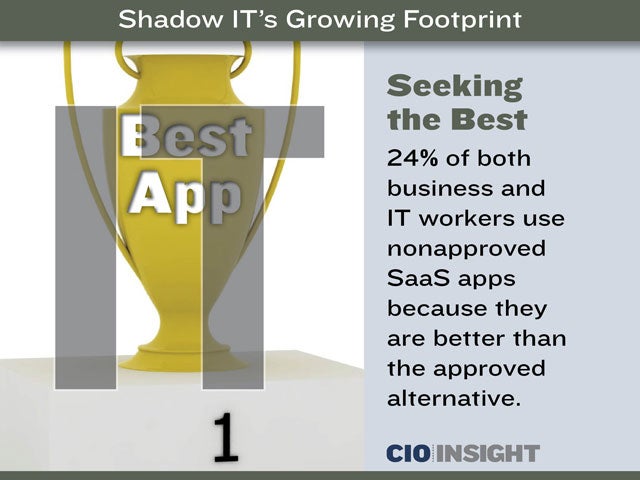 Seeking the Best
Seeking the Best
24% of both business and IT workers use nonapproved SaaS apps because they are better than the approved alternative.
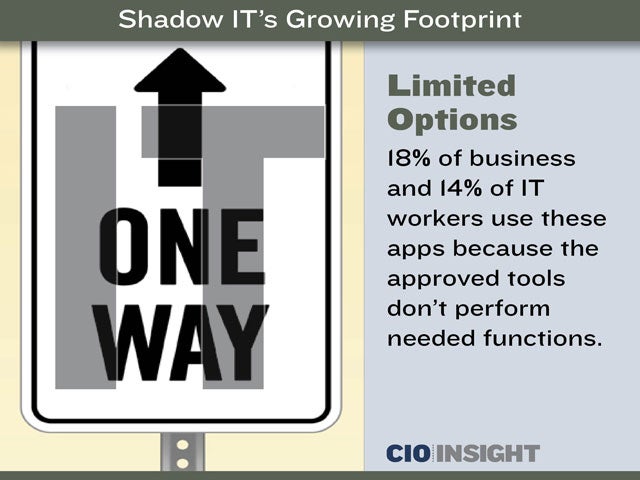 Limited Options
Limited Options
18% of business and 14% of IT workers use these apps because the approved tools don’t perform needed functions.
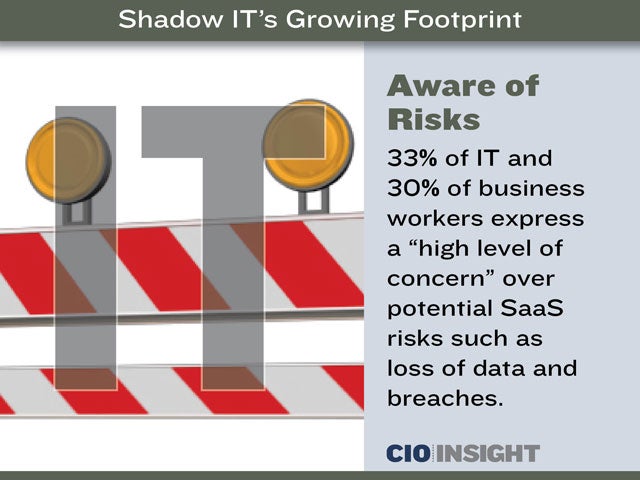 Aware of Risks
Aware of Risks
33% of IT and 30% of business workers express a “high level of concern” over potential SaaS risks such as loss of data and breaches.
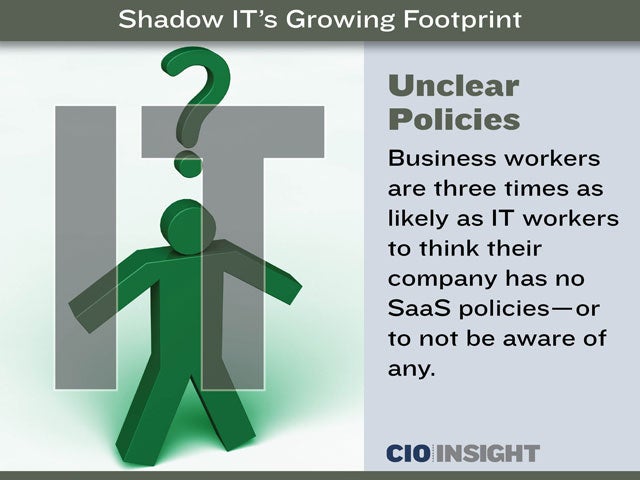 Unclear Policies
Unclear Policies
Business workers are three times as likely as IT workers to think their company has no SaaS policies—or to not be aware of any.
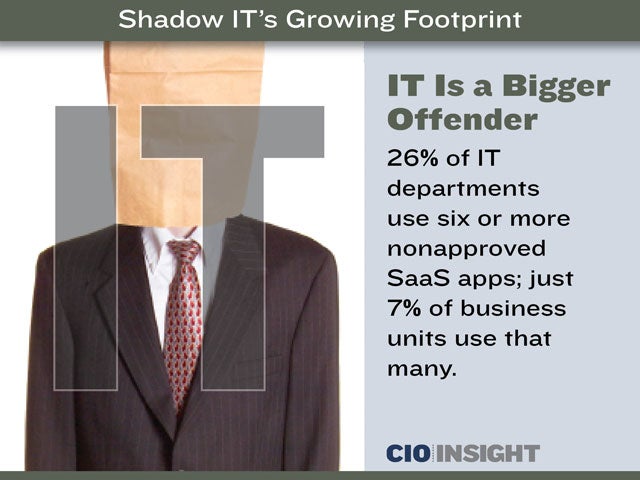 IT Is a Bigger Offender
IT Is a Bigger Offender
26% of IT departments use six or more nonapproved SaaS apps; just 7% of business units use that many.
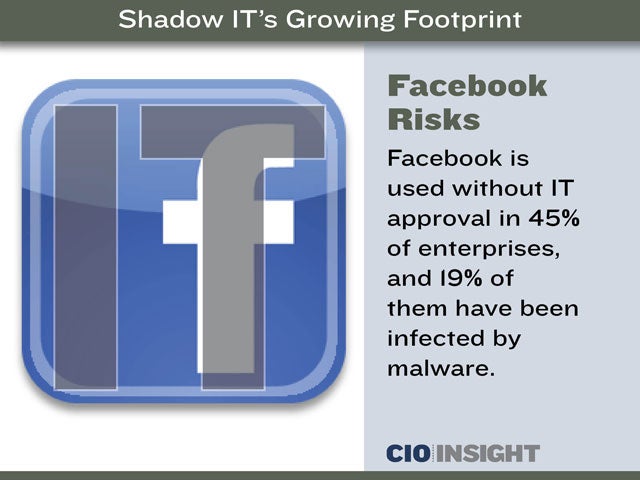 Facebook Risks
Facebook Risks
Facebook is used without IT approval in 45% of enterprises, and 19% of them have been infected by malware.
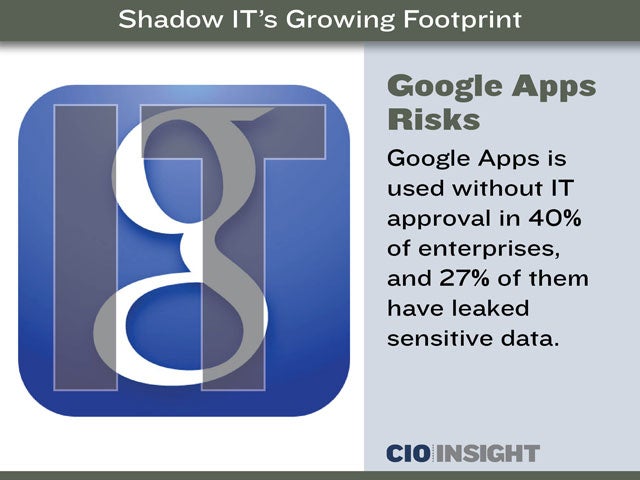 Google Apps Risks
Google Apps Risks
Google Apps is used without IT approval in 40% of enterprises, and 27% of them have leaked sensitive data.
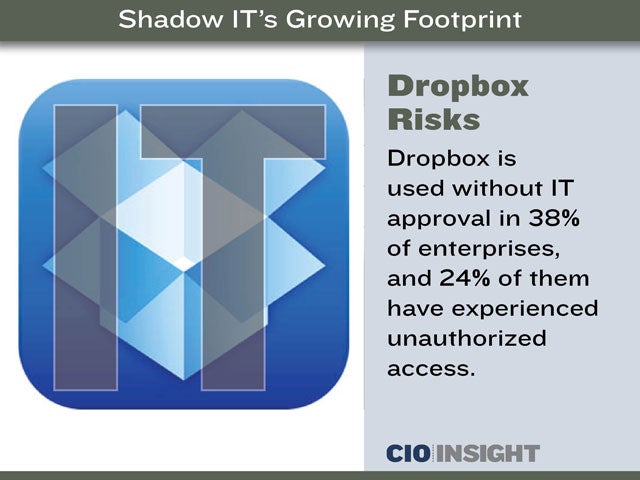 Dropbox Risks
Dropbox Risks
Dropbox is used without IT approval in 38% of enterprises, and 24% of them have experienced unauthorized access.